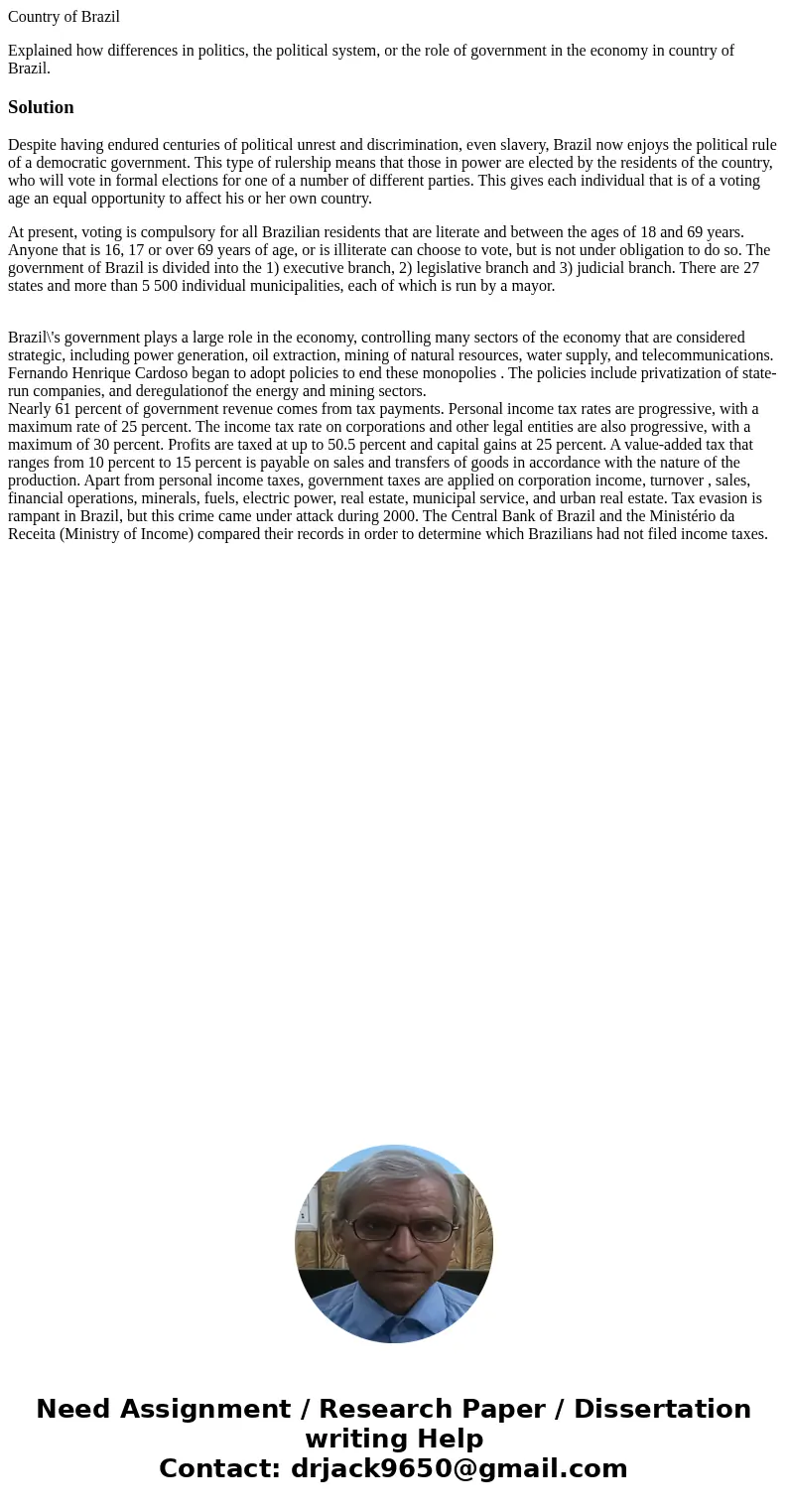Country of Brazil Explained how differences in politics the
Country of Brazil
Explained how differences in politics, the political system, or the role of government in the economy in country of Brazil.
Solution
Despite having endured centuries of political unrest and discrimination, even slavery, Brazil now enjoys the political rule of a democratic government. This type of rulership means that those in power are elected by the residents of the country, who will vote in formal elections for one of a number of different parties. This gives each individual that is of a voting age an equal opportunity to affect his or her own country.
At present, voting is compulsory for all Brazilian residents that are literate and between the ages of 18 and 69 years. Anyone that is 16, 17 or over 69 years of age, or is illiterate can choose to vote, but is not under obligation to do so. The government of Brazil is divided into the 1) executive branch, 2) legislative branch and 3) judicial branch. There are 27 states and more than 5 500 individual municipalities, each of which is run by a mayor.
Brazil\'s government plays a large role in the economy, controlling many sectors of the economy that are considered strategic, including power generation, oil extraction, mining of natural resources, water supply, and telecommunications. Fernando Henrique Cardoso began to adopt policies to end these monopolies . The policies include privatization of state-run companies, and deregulationof the energy and mining sectors.
Nearly 61 percent of government revenue comes from tax payments. Personal income tax rates are progressive, with a maximum rate of 25 percent. The income tax rate on corporations and other legal entities are also progressive, with a maximum of 30 percent. Profits are taxed at up to 50.5 percent and capital gains at 25 percent. A value-added tax that ranges from 10 percent to 15 percent is payable on sales and transfers of goods in accordance with the nature of the production. Apart from personal income taxes, government taxes are applied on corporation income, turnover , sales, financial operations, minerals, fuels, electric power, real estate, municipal service, and urban real estate. Tax evasion is rampant in Brazil, but this crime came under attack during 2000. The Central Bank of Brazil and the Ministério da Receita (Ministry of Income) compared their records in order to determine which Brazilians had not filed income taxes.

 Homework Sourse
Homework Sourse